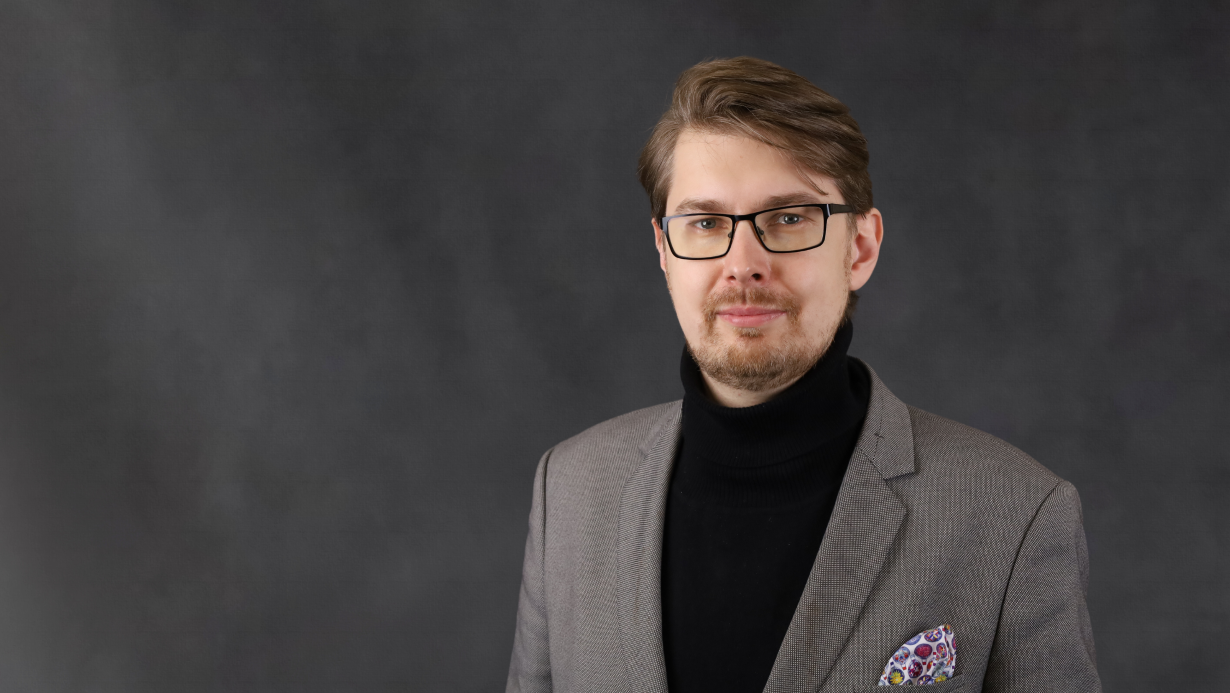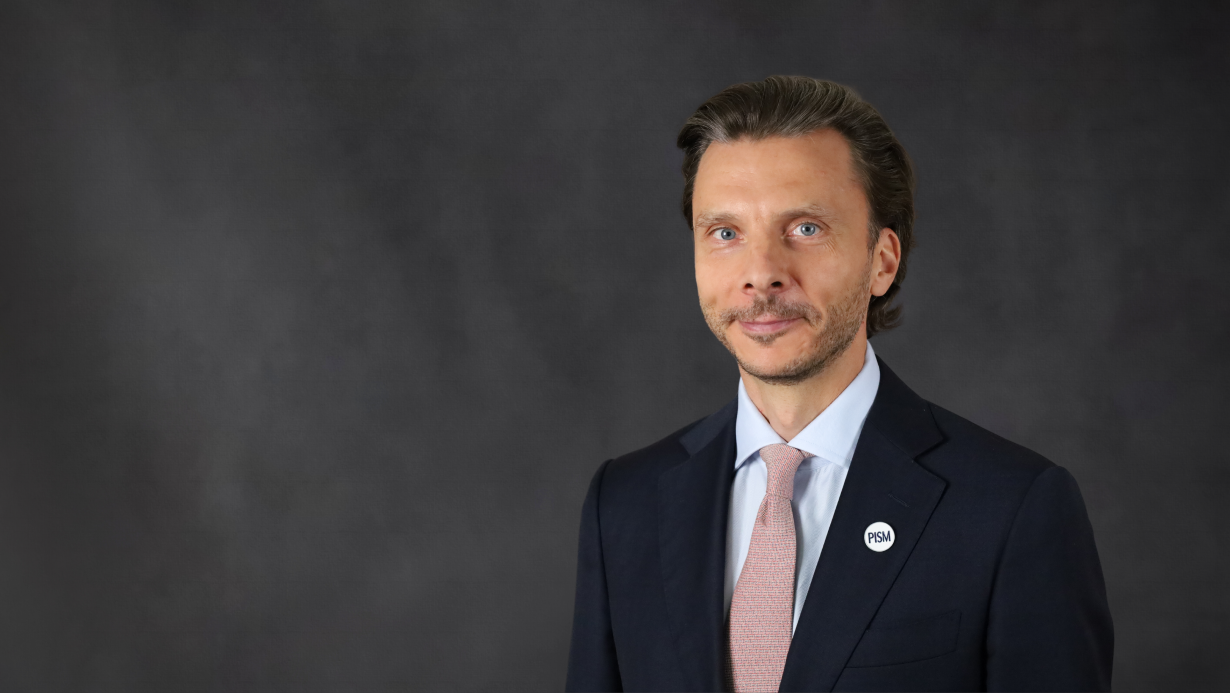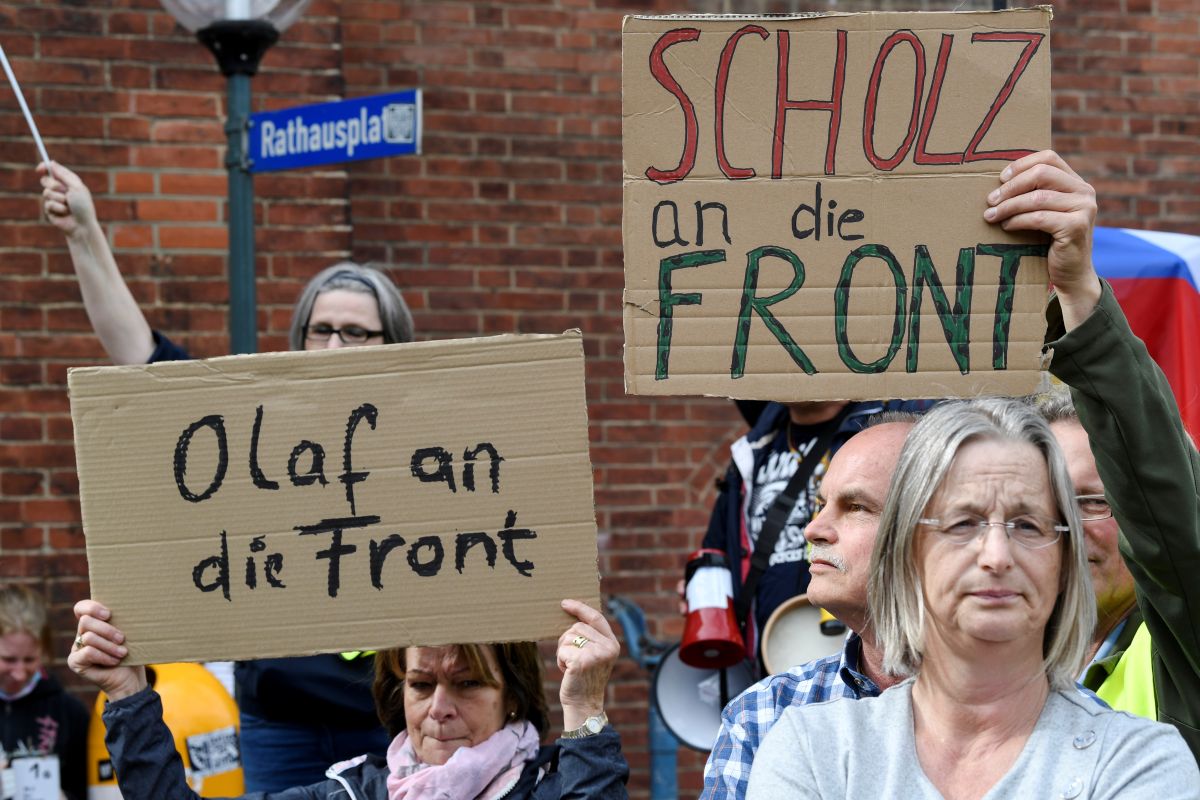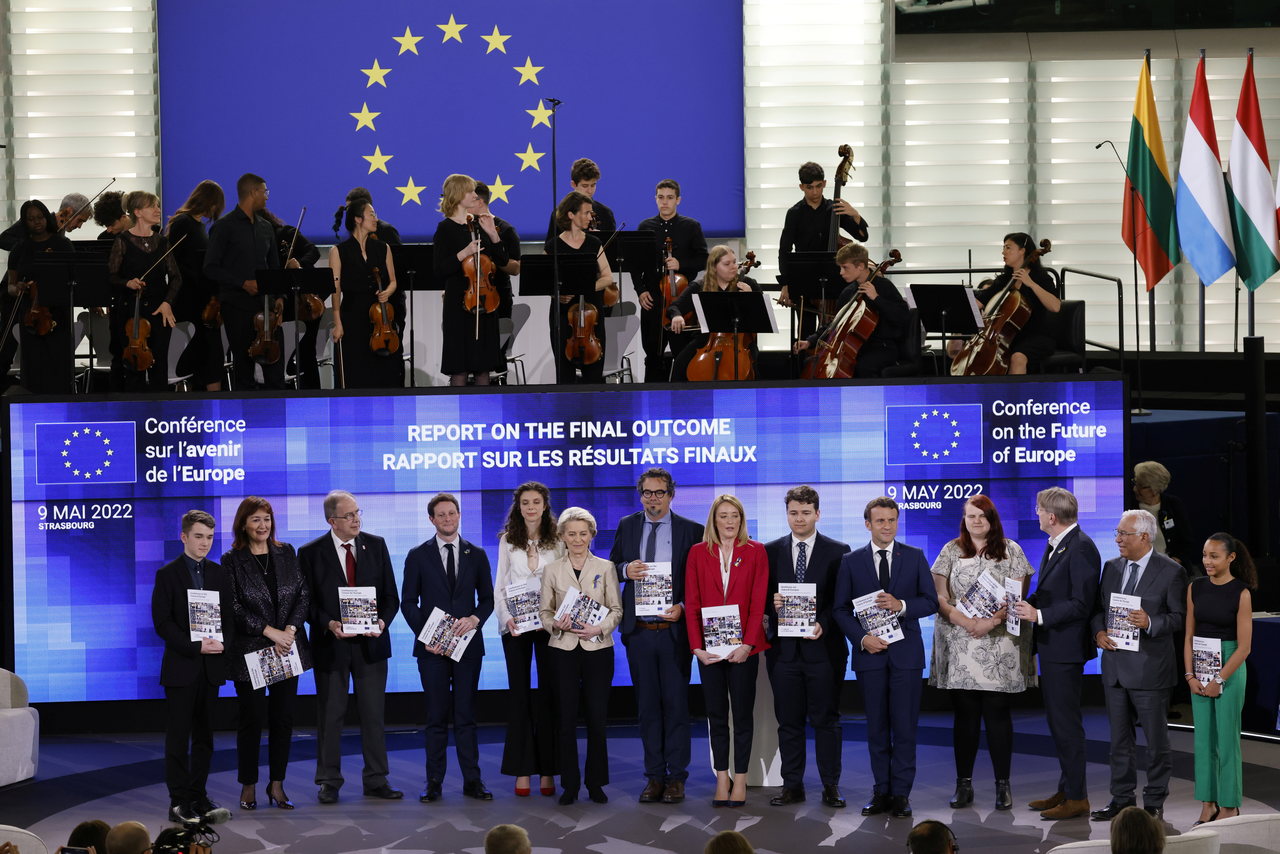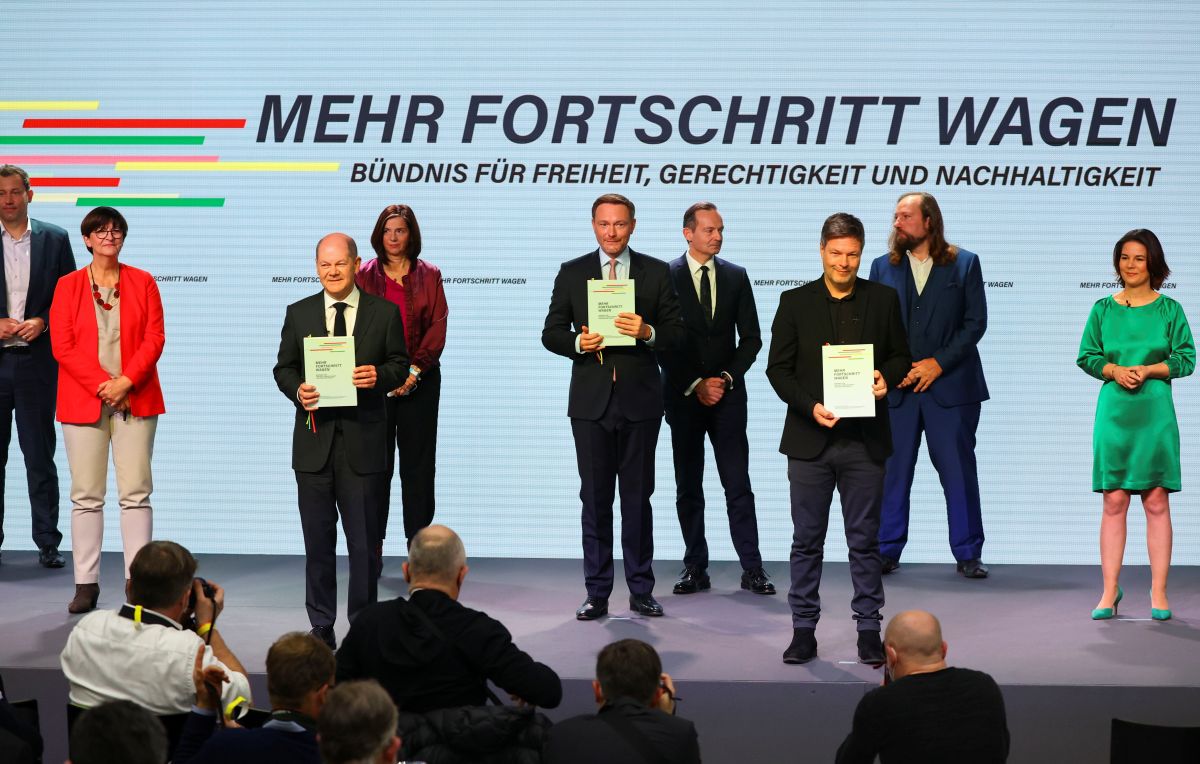German Chancellor Takes Up the Future of Europe
Olaf Scholz’s address on the future of Europe, delivered on 29 August at Charles University in Prague, was aimed at strengthening Germany’s status as the leader of the EU, undermined by its too passive reaction to the Russian aggression against Ukraine. The balanced set of proposals for reforms reflects the ambition to play the role of architect of compromises between the Member States.
_sm.jpg) DAVID W CERNY/ Reuters/ FORUM
DAVID W CERNY/ Reuters/ FORUM
What was the political context of the address?
The invasion of Ukraine marked the failure of Germany’s eastern policy based on energy cooperation and maintaining dialogue with Russia. This failure and the very long-delayed implementation of the Chancellor’s announced support for Ukraine have resulted in a weakening of Germany’s image and position in the EU. The international context is also formed by the debates on the future and reform of the Union that are gaining momentum after the conclusion of the Conference on the Future of Europe and the prospect of the accession of the Western Balkan countries, Ukraine, and Moldova. In terms of domestic politics, both the government and the Chancellor are struggling with worsening approval ratings. Some of the main critiques of the head of government include his weak leadership in the face of the war in Ukraine and the threat of economic recession. Germany’s active involvement in the debates on the future shape of the European Union could serve to improve the country’s image on the international stage, as well as politically strengthen Scholz, who is trying to present himself as an active and pragmatic leader.
What are the EU’s strategic objectives according to the Chancellor?
One of the main challenges for the EU is to gain independence from Russian energy supplies and to reduce technological dependence on China. An element of European self-reliance should be a move away from imported fossil fuels and investments in semiconductor production, as well as the deployment of new technologies. Scholz stressed the role of international trade as a source of prosperity for Europeans, so the goal of developing European independence should not be autarky. In the context of the war in Ukraine, the Chancellor stressed the need for greater coordination of European defence efforts. To achieve these goals, Scholz proposed inaugurating EU Council meetings in the format of defence ministers, as well as establishing a command and headquarters of the planned EU Rapid Reaction Force. The Chancellor envisions the possibility of participation by other countries, including Poland, in the development of a German air defence system. Regardless of these efforts, the basis for the security of EU countries is to remain NATO.
Which reforms of the Union does the Chancellor want?
Scholz strongly supported further enlargement of the EU. He stressed, however, that it is conditional on institutional reforms, most probably including changes to the treaties. A crucial improvement would be to modify the decision-making process by giving up unanimity. Consensus is still required in a small number of important policy areas (e.g., external relations and taxation). According to the Chancellor, in a Union of more than 30 members, the risk that one of them will decide to use its veto power to force concessions on others is just too big. Unanimity is to be eliminated gradually to persuade states wary of this change. Scholz did not back the controversial idea to reduce the number of Commissioners, nor did he mention the creation of a federal state, which was named as a long-term goal in the German coalition agreement.
What contentious issues need to be urgently solved according to Scholz?
The Chancellor stressed that the EU needs to reach compromises on the longstanding arguments regarding migration and fiscal rules. As regards the former, Scholz believes that if the Union becomes more open towards legal migration, it will be more likely to persuade countries of origin to control irregular movements. On budgetary matters, Scholz evoked the German position published a few weeks ago that suggested a slower pace of public debt reduction. This would enable the most indebted states of Southern Europe to avoid drastic budgetary cuts. The Chancellor backed the European Commission’s efforts on the rule of law but declared, on a more conciliatory note, that divergences in this domain should be settled through negotiations rather than court cases.
Could the German proposals become a basis for reform of the EU?
Scholz makes the case for cautious reforms. Like his predecessor, he wants to play the role of the creator of compromises acceptable to all members. To achieve this goal, he is ready for some concessions, for instance, on fiscal rules. Reconciling the objectives of widening and deepening the Union, often considered opposite goals, could constitute the foundation of the reforms. Supporters of enlargement in Central and Eastern Europe would embrace treaty change, while advocates of the latter (France in particular) would cease to delay accession negotiations. Poland and the countries of the Union’s eastern flank will judge Germany’s credibility as the promoter of European sovereignty first and foremost by its readiness to translate the critique of Russia into action and boost support for Ukraine. Meanwhile maintaining an unwavering posture regarding sanctions on Russia will be a challenge for the entire EU.


